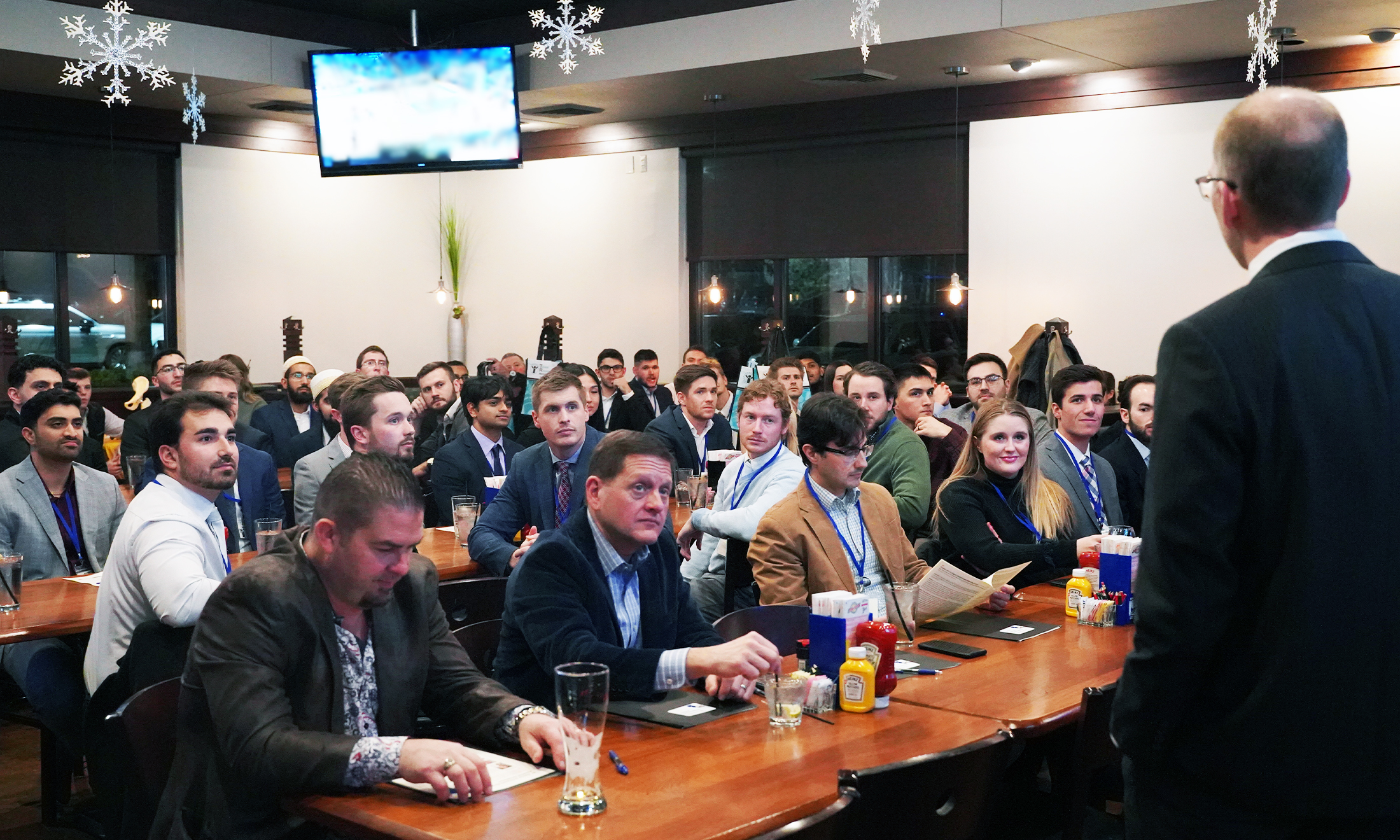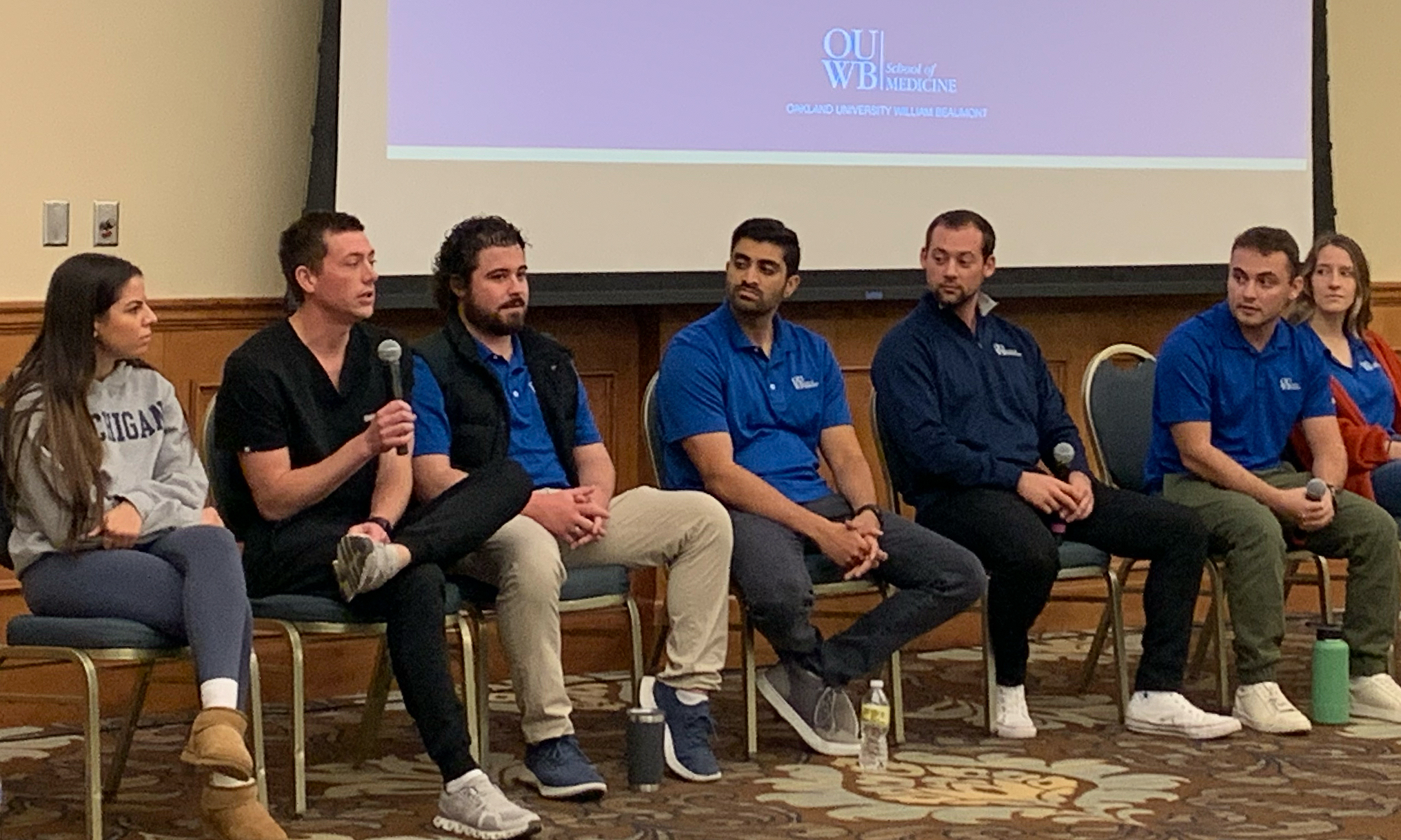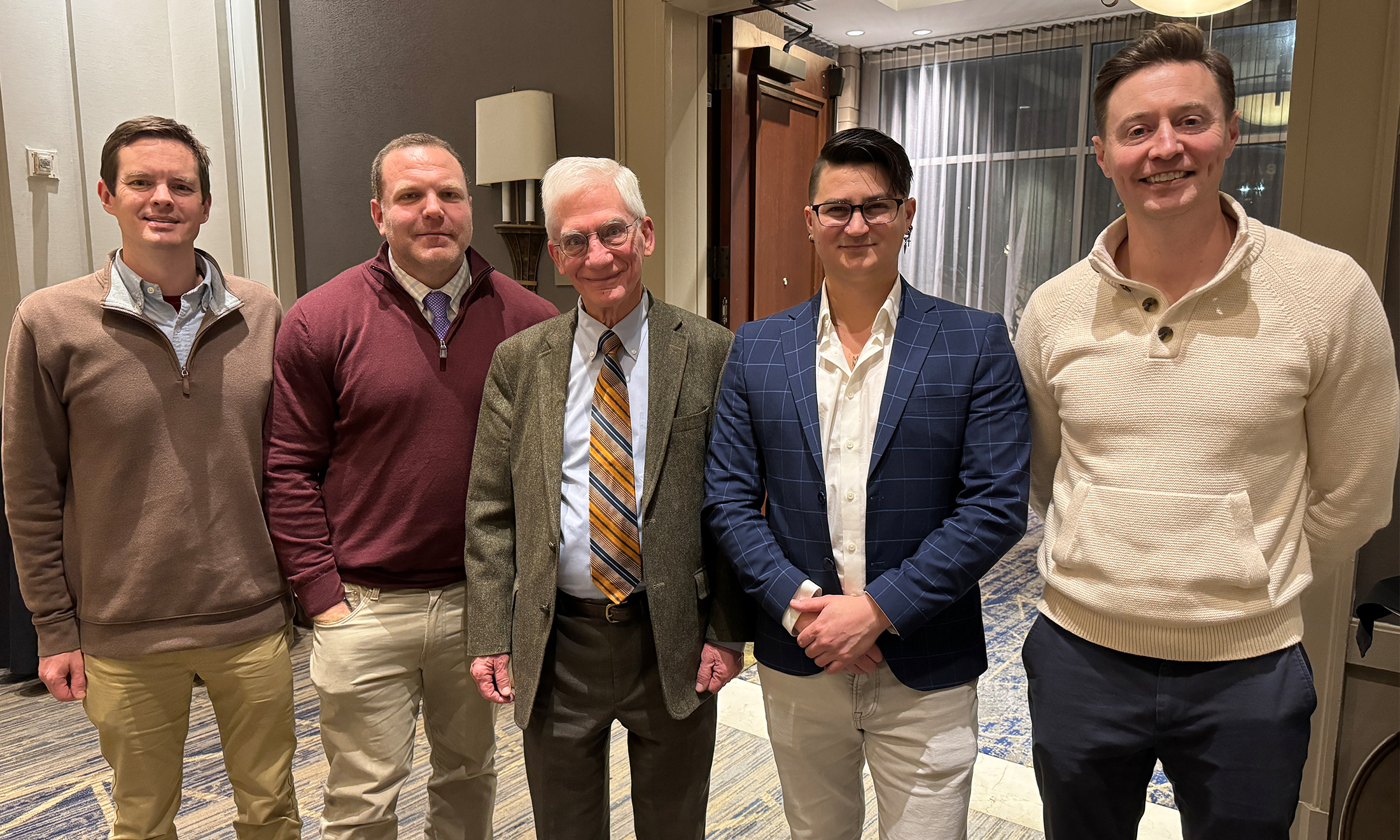Thinking ‘outside-of-the-box’
Rachel Hunt, M.D., ’17, reflects on how homeschooling, an ICU, and OUWB helped her to become a neurosurgeon — and the importance of Taco Tuesday
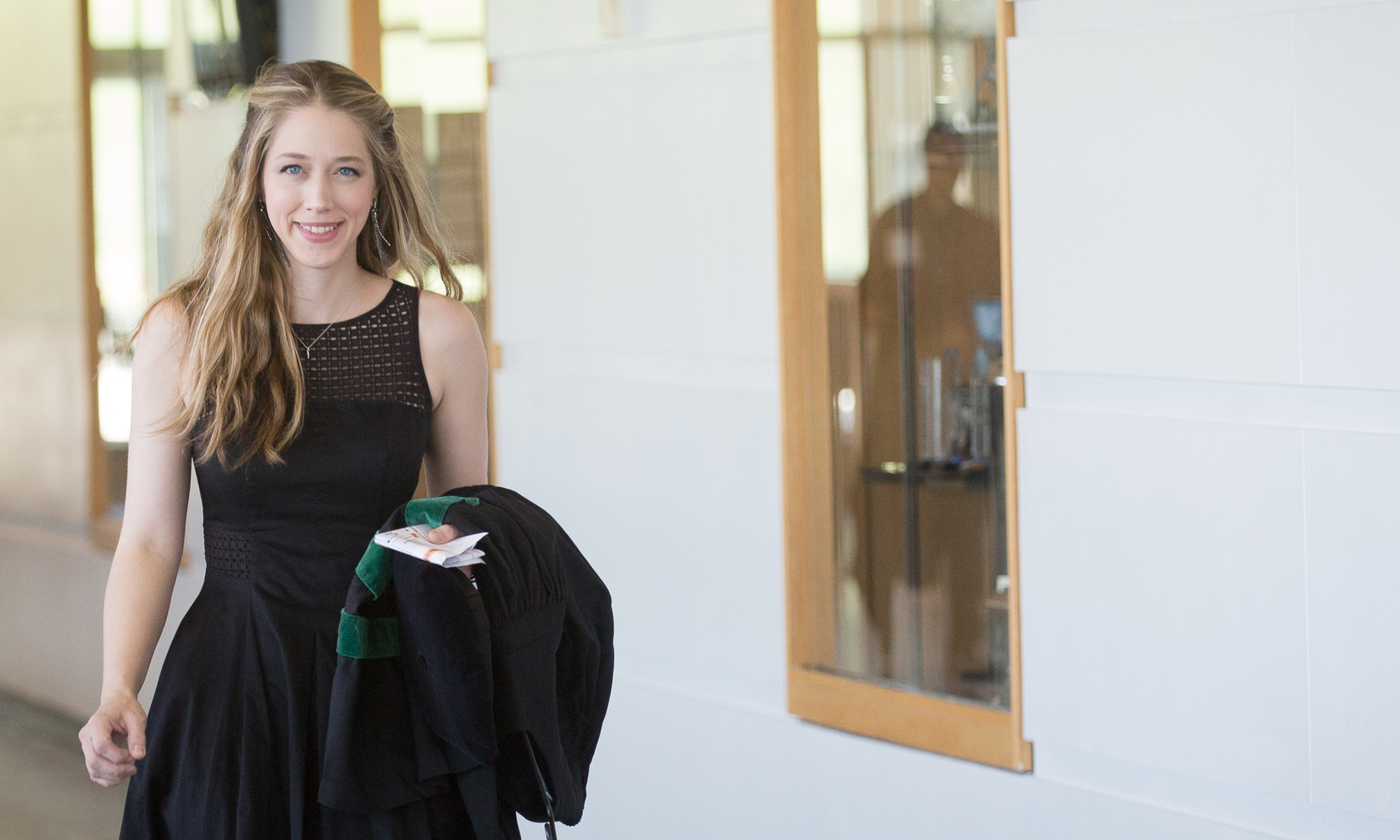
Rachel Hunt, M.D., '17, was all smiles the day she graduated from OUWB. (File photo)
When Rachel Hunt, M.D., was applying to medical school, it was OUWB’s longer-than-normal name that caught her eye — but it’s the experiences she had there that won over her heart.
Hunt, ’17, OUWB, learned how to work in teams, and how to effectively give and receive feedback.
The interactive approach to learning made it easier for her to tackle the foundational sciences needed for a career in medicine.
The clinical experiences at what is now Corewell Health helped her learn how to interact with, and evaluate, patients.
It all played a big role in helping her get where she is today, in her sixth year as a neuro surgery resident at Henry Ford West Bloomfield Hospital.
“I never doubted that attending OUWB was the right decision,” she says. “It was a really great experience.”
‘Why, why, why?’
Hunt grew up in Albuquerque, New Mexico.
A love of learning was fostered by her parents, who homeschooled her. Homeschooling, Hunt says, helped prepare her for studying to become a doctor.
“People sometimes describe me as an outside-of-the-box thinker, to which I say I had no idea the box existed,” she says. “I come at things at a different angle because I didn’t have a classic traditional education.”
Hunt says her parents made sure she knew the basics, but stressed “the most important thing is to have children preserve the joy of learning, because that way they will want to learn their whole lives.”
Such freedoms paved the way for Hunt to be a self-directed learner, which she fully embraced.
“I had to have that curiosity within myself,” she says. “There were nine kids in my family and my mother didn’t have time to sit down and teach me everything…I had to take a little more responsibility from an earlier age for my own education.”
Her first experience in a more traditional school setting was at Oral Roberts University, a private evangelical university in Tulsa, Oklahoma.
With a desire to help other people, she studied nursing and completed her undergrad at Oral Roberts. She soon landed a job at an intensive care unit in New Mexico.
But, she says, she knew nursing wasn’t for her.
“Nursing is a wonderful field of service, but there’s a limit to how much you understand what’s going on,” she says. “There’s a lot of memorizing, a lot of routines, but there were things like having to remember the list of drugs that were calcium channel blockers without having any clue about what a calcium channel was.”
“I was constantly asking why, why, why?” she adds.
Hunt says it took her about 18 months to begin the process of preparing for medical school.
At the age of 26, OUWB came into her life.
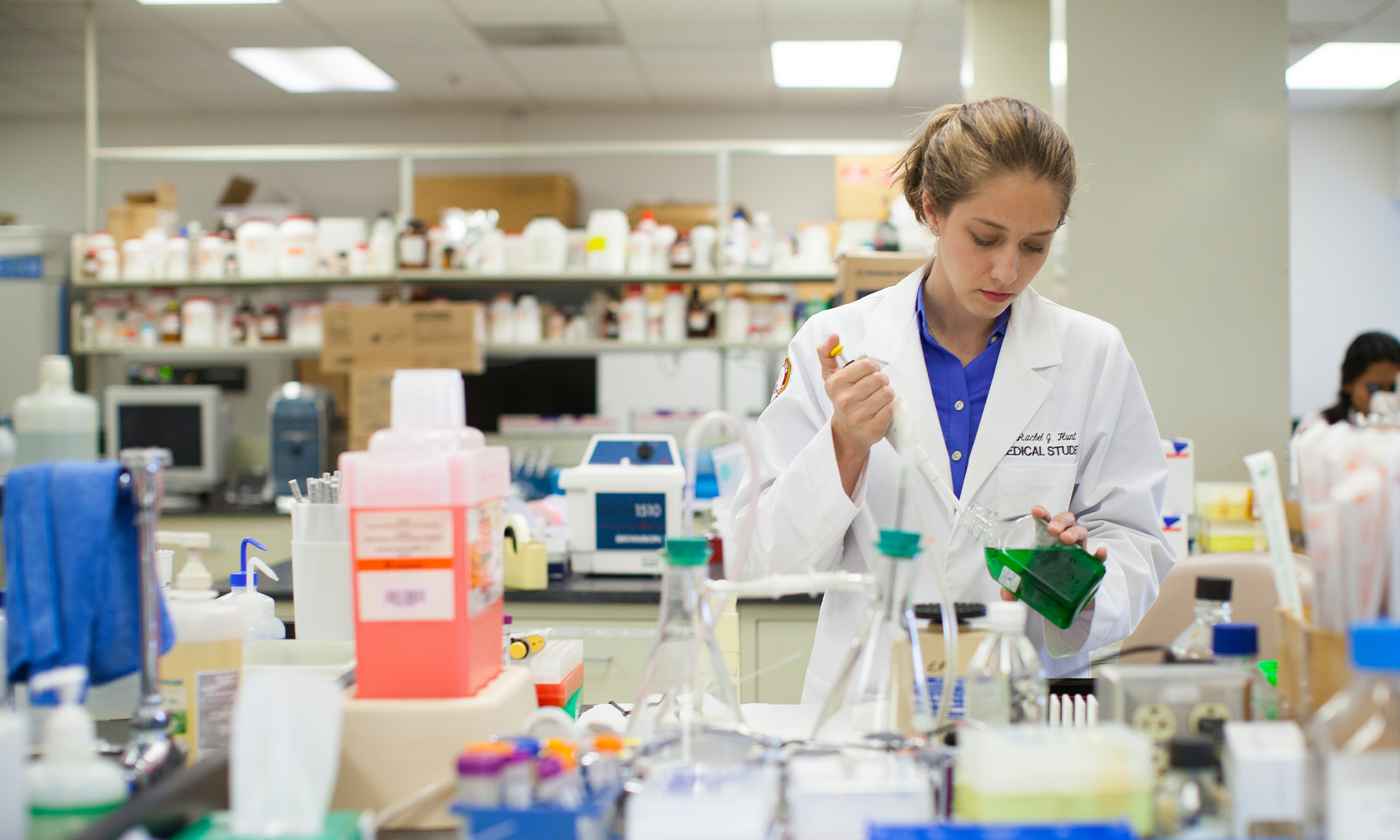
Hunt conducts lab research while a student at OUWB.
‘A path forward’
Hunt says she was reviewing a list of medical schools, and the name “Oakland University William Beaumont School of Medicine” sparked her curiosity because of its length.
“I had never heard of the school and the name is really long,” says Hunt. “I looked it up and saw that it was a new school, and that their philosophy would be a really great fit for me. They seemed to have the same values that I do and want the same things for their students as I want for my career.”
Hunt eventually was accepted and said it “was one of the happiest days of my life.”
She officially began her medical school journey as part of OUWB’s second class (Class of 2016).
“I was excited to have a path forward,” she says.
Hunt says she has many fond memories of her time at OUWB: the mentorship she received on both career and personal levels; the way feedback was given and received; the interactive approach to teaching and learning; and the opportunities.
For example, between her M3 and M4 years, Hunt was one of 55 medical, dental, and veterinary students selected for the 2015-16 National Institutes of Health (NIH) Medical Research Scholars Program (MRSP) in Bethesda, Maryland. She had to take a year off from OUWB to participate in the program.
During the experience, Hunt worked closely with an NIH mentor, attended lectures on policies and technologies pertinent to research, took part in clinical teaching rounds, and attended NIH Clinical Center courses that highlighted the principles and practice of clinical research, including writing and publishing scientific papers.
“It gave me a deep appreciation for the scientific process,” says Hunt. “Getting to be there and see all of these really well-done experiments, these really great minds in the field, and getting to go to their rounds every week…it sparked my curiosity even further for how things work, and helped me understand science and scientific literature a little better.”
She returned to OUWB and recalls how excited she was when, on Match Day, she learned she had matched at Henry Ford.
‘Find my reason’
Hunt is now in her sixth year of residency at Henry Ford West Bloomfield Hospital. She got married last year and says she is particularly fond of the little things in life that make a big difference — walking her dog, for example, or celebrating “Taco Tuesday” with her husband.
Hunt says with a laugh that she also adjusted to Michigan winters long ago.
But adjustments seem to have always been a way of life for Hunt, who admits the first couple of months were rough as she made the transition from the comforts of OUWB to being a young doctor.
“I don’t say that to reflect bad on OUWB,” she says. “I say that as shame on the rest of the world…I think that medical education has a way of putting people in survival mode, and that makes it harder for you to hold onto to the compassion that compelled you to go into medicine. I think OUWB is trying to fix that by creating compassionate physicians who are treated compassionately (when they are in school.)”
Hunt says she has grown a lot during her residency, something else that she didn’t exactly foresee when she was fresh out of med school.
“I thought I was fully grown at that point…I had no idea how much a person could grow,” she says. “I realized that I’m going to have to keep growing for the rest of my life.”
Specifically, she says, residency has “stretched me in ways that I didn’t know a human being could be stretched, and it’s taught me things about myself.”
“You don’t know what kind of person you are until it’s 3 a.m., you’re exhausted, you’re starving, the cafeteria is closed, and you’ve got another intracranial hemorrhage in the E.R…you suddenly realize, ‘Maybe I’m not as nice of a person as I thought I was.’”
To get through times like that, says Hunt, she’s learned to be particularly mindful of practicing grace and patience.
“You know what I do? I spend too long with my patients,” she says. “I stop trying to get out of there so I can get all of these notes done on time. I sit down, ask them how their day is going, and what they’re looking forward to about going home.”
“I find that human connection…I find my reason again,” she says. “Because as a doctor, ultimately your job is not really so much to save lives or fix disease, it’s to help people get back to a life they find meaningful.”
Hunt says she’s also grown to become more grounded and centered.
When she was doing her NIH work between M3 and M4 years at OUWB, one school official called her “brilliant” and said that “she will make a difference in the world.”
There was a time that Hunt says she might have agreed with such lofty expectations.
“It used to be a burning passion of mine to make a difference in the world, but the world is a very big place and I have learned my smallness in it,” she says. “My hope now is to make a difference in a lot of worlds. Maybe I’m not going to be famous. Maybe I’m not going to make some great scientific breakthrough.”
“But I like to think I’m going to get a lot of people back to walking their dogs and going out for Taco Tuesday with their husbands.”
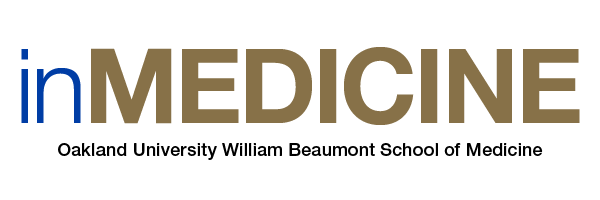
 Dec. 21, 2022
Dec. 21, 2022 By Andrew Dietderich
By Andrew Dietderich